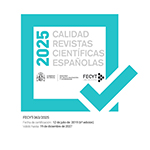Gender inequality in Russian Academia: dynamics, insights, and explanations
Abstract
Whereas Europe currently pursues reform and transformation of academia in the context of New Public Management, Russia seeks to regulate the processes of modernization of the latter one, thus addressing its excellence and effectiveness. In both cases, the processes underlying social change in academia impact on female scholars’ occupational advancement. By doing so, they contribute to reproduction of existing gender inequalities and certainly create new ones.
Russia stands in front of the paradoxical situation: while women represent a majority of (scientific) staff in academia, they face persistent discriminatory experiences on the part of their colleagues – both male and female (Sillaste, 2004; Pushkareva, 2014). Still, our knowledge on gender disparities and discrimination in academia is only scarce and needs extensive investigation. This paper aims at reducing the existing gap by analysing gender inequalities from a dynamic approach.
Downloads
Article download
License
In order to support the global exchange of knowledge, the journal Investigaciones Feministas is allowing unrestricted access to its content as from its publication in this electronic edition, and as such it is an open-access journal. The originals published in this journal are the property of the Complutense University of Madrid and any reproduction thereof in full or in part must cite the source. All content is distributed under a Creative Commons Attribution 4.0 use and distribution licence (CC BY 4.0). This circumstance must be expressly stated in these terms where necessary. You can view the summary and the complete legal text of the licence.











